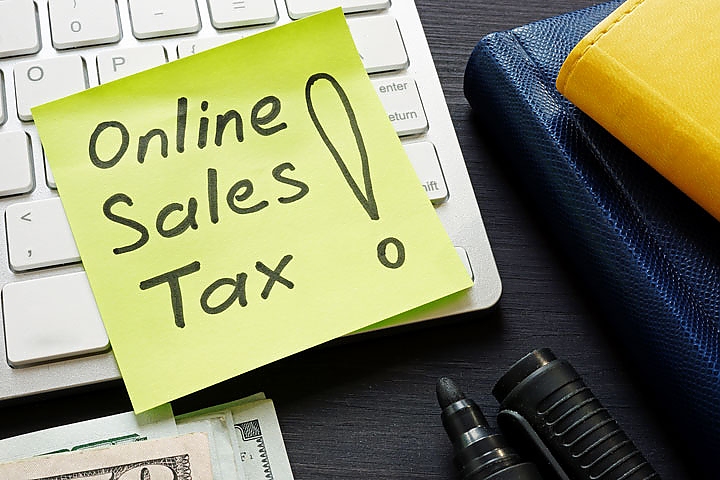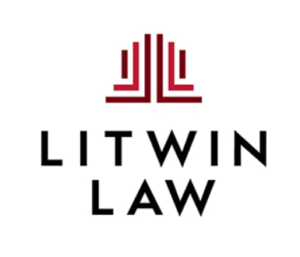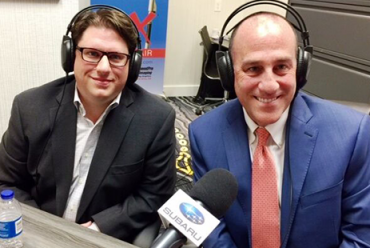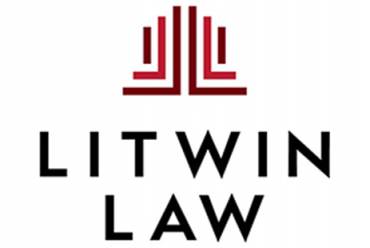Remote Seller Sales/Use Tax Obligations to Other States – Ten Takeaways from 2020 – Part One (Points 1 through 5)
For businesses that sell to customers in other states, now is the time to take action (not taken previously) to comply with other states’ economic nexus laws. These laws require remote sellers to collect sales/use tax and file sales tax returns, even though the remote sellers do not have physical presence in the state. This two-part article covers 10 takeaways from our experiences, in 2020, in representing remote sellers that sell product or services to customers in other states.
Part one of this article contains takeaway points one through five. Part two of the article, to be posted in mid-January 2021, contains takeaway points six through ten.
Point 1- Wayfair Emboldened the States to Enact Economic Nexus Laws. Since June 2018, most states have adopted economic nexus laws that impose collection and reporting obligations on remote sellers (typically, out-of-state Internet sellers). The US Supreme Court’s June 21, 2018 Wayfair decision has empowered the states. In the wake of Wayfair, 43 states and the District of Columbia have passed economic nexus laws. Outlier states Florida and Missouri are expected to enact economic nexus laws soon. Six states (Alaska, Delaware, Montana, New Hampshire and Oregon) do not impose sales/use tax.
Under most state economic nexus statutes, a remote seller that has no physical presence in the state (i.e., no office, no employees, no property or independent sales reps working in the state, no frequent trips to the state to visit customers in the state) must, nevertheless, collect the state’s sales/use tax. Under most state statutes, a remote seller must collect tax when (1) in the prior calendar year or in the current calendar year (2) the remote seller reaches $100,000 in gross sales to customers in the state or makes 200 transactions (typically, a single invoice counts as a transaction) to customers in the state.
Point 2 – Sellers Must Start Complying. Some remote sellers have reached the economic nexus thresholds in several states but either do not know about the economic nexus laws or, worse, have chosen to ignore the laws. Most economic nexus laws are effective July 1, 2019, if not earlier. Remote sellers can expect swift enforcement from the state taxing agencies (see Point 3, below). So, a seller that sells product or services to customers in other states must be registered with the other states once the seller reaches the threshold. A seller that (1) has already met the threshold in a particular state but (2) has not complied with the registration/collection/reporting requirements should not simply register “effective today” or on a “going-forward” basis. Such action has detrimental consequences beyond the scope of this article. Instead, if the seller qualifies, the seller should use the state’s voluntary disclosure program to register and report and pay back taxes that the seller failed to collect.
State taxing agencies have voluntary disclosure units/sections that allow the remote seller to come forward anonymously (usually through counsel) to get into compliance. Through voluntary disclosure agreements, the states limit the lookback period for uncollected back taxes and waive penalties (typically, 25% of the uncollected or unpaid back taxes). More recently, in light of the Covid-19 pandemic, many states offer payment plans that allow the remote seller to pay over several months. Generally, a remote seller qualifies for a state’s voluntary disclosure program so long as (1) the state taxing agency has not contacted the remote seller and (2) the remote seller is current on all other tax obligations to the state. Thus, a remote seller that has received a notice from the state about the new economic nexus laws may not be eligible for the favorable voluntary disclosure program.
Further, remote sellers that, in the past, may not have gotten exemption certificates from exempt purchasers must change that practice. Now, more than ever, states insist that remote sellers provide documentation to prove a sale is exempt from tax. In general, a sale is considered a taxable retail sale until proven otherwise by the seller. If the remote seller cannot prove that the sale was exempt, then the taxing agency will likely assess the tax against the seller that failed to get the exemption certificate from the purchaser.
Point 3 – 2021 is the Year to Get into Compliance. The 2020 economic downturn jolted state coffers. The pandemic depressed all revenue sources: corporate and personal income taxes, unemployment insurance taxes and sales/use taxes.
In 2021, with an eye toward recovery, state taxing agencies must try to recoup lost revenues needed to fund pandemic-related programs (e.g., healthcare, education, unemployment insurance funds). Further, unlike the federal government, which has no balanced-budget requirement, most states must have a balanced budget. Thus, for 2021 and 2022, state agencies expect massive spending cuts. The shortfalls intensify the urgency that states face in uncovering more tax revenues.
Pundits predict that state taxing agencies will choose not to disturb its own, in-state, businesses, many of which have curtailed staff, cut back on operations or closed down. This leaves remote Internet sellers as prime targets, especially in light of the rise of online shopping, which almost doubled from 2019 to 2020. Remote sellers that have not complied with state economic nexus laws can expect aggressive state collection tactics.
Point 4 – Wholesalers and Other Sellers to Resellers. Generally, sales-for-resale are not subject to sales/use tax, because such sales are not sales to the end-user. Thus, sales by manufacturers to resellers and sales by wholesalers to retailers are not taxable. Still, such sellers may be required to register and report sales to states where the sellers have economic nexus. As noted above, most states require registration and reporting if in the prior calendar year or the current calendar year the remote seller has reached $100,000 in sales to customers in the state or has made 200 transactions. These thresholds do not distinguish between “retail” sales and “wholesale” sales. Therefore, even though the remote seller is not required to collect the sales/use tax, the remote seller must, nevertheless, (1) register with the state, (2) file sales/use tax returns with the state and (3) gather resale exemption certificates from purchasers.
Point 5 – Knowing when to Register. A remote seller must monitor its sales to the states to which the remote seller ships product. Some states require a remote seller to register and collect sales/use taxes immediately upon reaching the state’s threshold. Other states allow the remote seller to register and collect within one or two months of reaching the threshold. Each state has different timing requirements, so the remote seller must track sells to all the states and be ready to register upon reaching the state’s economic nexus threshold.
Conclusion for Part One. A remote seller that met thresholds under a state’s economic nexus law but failed to register and collect tax is not doomed. The seller can use the state’s voluntary disclosure program. Typically, through counsel, the remote seller approaches the state anonymously and prior to contact by the state. The remote seller offers to come forward, register, pay the back taxes and interest and begin filing sales/use tax returns. In exchange, the state waives penalties. In light of the pandemic, many states now offer payment plans, giving the remote seller an extended period of time to pay the back taxes and interest. After the seller completes all terms under the voluntary disclosure agreement, the state taxing agency will waive penalties. A remote seller that has failed to register cannot and should not sidestep the state’s voluntary disclosure program. Under no circumstances, should the remote seller register “effective today” or “effective going forward.” This is dangerous and illegal, in view of the fact that the registration application requires the seller to state under penalties of perjury the date that the seller started making sales to customers in the state. Moreover, in many states, a remote seller that is already registered is ineligible for the voluntary disclosure program. States such as Alabama, Louisiana, Minnesota and Michigan do not allow a registered taxpayer to use the voluntary disclosure program.
Part two of this series addresses rolling/trailing nexus, the consequences of using marketplace facilitators to make sales and a purchaser’s liability for self-reporting and paying the sales/use tax when the remote seller fails to collect the tax or is not required to collect the tax.
Litwin Law represents individuals and businesses in state and local tax matters. Litwin Law deals with a variety of issues that arise during audit and during protest and appeal to the state taxing agencies across the country.
For over 30 years, as a recognized Super Lawyer since 2008, as a recognized U.S. News & World Report “Best Lawyer” since 2010, and as a U.S. News & World Report Best Lawyers 2021 Lawyer of the Year, for “Litigation and Controversy – Tax,” Richard Litwin has devoted his practice to multistate tax, state and local tax, and tax controversies.
Note: “Pass the SALT” is a blog of The Litwin Law Firm, P.C., d/b/a Litwin Law, and is dedicated to sharing views and ideas on state and local taxation. This document is an overview and summary of state and local tax obligations. This document is not intended to be, nor should be interpreted as, legal advice. For legal advice, the reader should contact an attorney.
The Hero Image Online sales tax on a keyboard and money belongs to https://www.shutterstock.com/g/designer491









